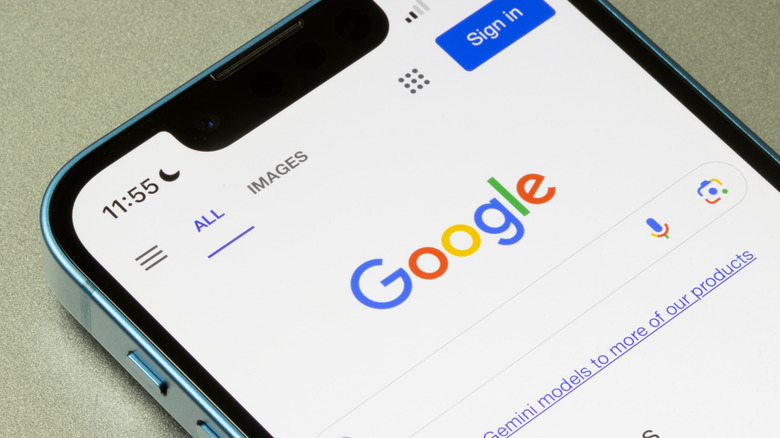iOS 26 Makes It Even Easier To Stop Google From Tracking Your iPhone
Earlier this year, Google undid one of the biggest privacy changes it had made to how it allows advertisers to capture data about your online usage. This data, which has collectively become known as your digital fingerprint, is basically a catch-all for advertising information that will help advertisers create more targeted advertisements for you.
When Google stopped fighting against digital fingerprinting, it was a complete one-eighty from the company's previous stance on the matter, which had been pushed by privacy regulators, as well as in lawsuits and by Apple. Since its reintroduction to capture information about your digital fingerprint, Google has quietly been collecting information about anyone using an iPhone or an Android phone.
Apple introduced ways to help mitigate this with the advanced tracking and fingerprinting protection feature in Safari. By default, this setting has been toggled to only provide protection when using Private Browsing, but Apple says it will change how it approaches this feature in iOS 26 by offering protection for all browsing by default when the update rolls out in September.
What is advanced tracking and fingerprinting protection?
According to Apple's privacy notes, its fingerprinting defense feature works by presenting a simplified version of your system configuration to trackers — like your device and browser settings, your IP, fonts, and plug-ins. This simpler config is meant to make devices look the same to online trackers, which Apple says should "make it harder to single yours out."
When enabled, this keeps advertisers from being able to track your data as easily, though you may receive get some targeted advertisements. That's because this setting does not wholly stop the collection of data about your device, rather providing a simpler configuration for the tracking systems. Plus, if you use a browser aside from Safari, then this setting won't have any impact at all.
It's also worth noting that because the Safari setting disrupts how the browser captures data, it can cause issues with some pages and how they load. While I've never personally experienced this while using Safari, others have expressed their own concerns about the warning messages that pop up and how annoying they can be. But, for a little extra privacy, it might be worthwhile to put up with some of those annoyances.

